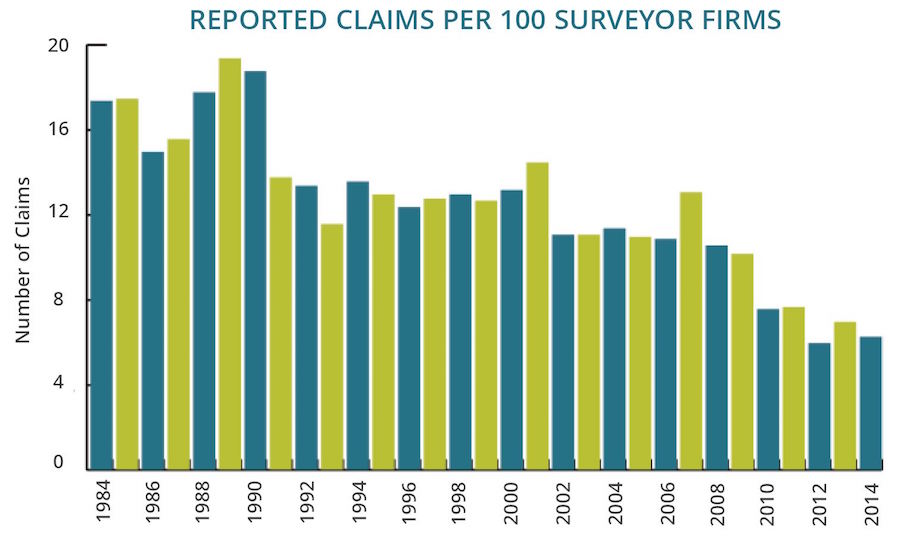In what may be one of the industry's signature risk management successes, claims against land surveyors continue to drift downward and stay down.
Between 2010 and 2014, land surveyors reported fewer claims annually than any other year since 1984, according to a recent report by Victor O. Schinnerer & Co. Statistics from the Chevy Chase, Md.-based firm’s report Staking Out Your Future show a steady drop in claims between 1984 and 2014.
“If you go over the longer timeframe, [claims] are falling over the years,” says Nahom Gebre, risk management attorney at Schinnerer. “The types of claims that surveyors are facing are more manageable and the expectations are fairly well set by now.”
Schinnerer’s research involves the companies for which it provides insurance.
In 1988, 19 out of 100 surveyor firms reported claims, while in 2014 six out of 100 firms reported claims. Schinnerer data shows some small increases in claims during recessionary periods. “When things go wrong, generally claims go up because project expectations aren’t fulfilled and clients are looking to recover from entities,” Gebre adds.
Schinnerer notes that, in 2014, payment on behalf of policyholders for responsibility in causing damage or injury through negligent surveying services happened in 30% of claims, suggesting that 70% of all claims against surveying firms were considered “meritless.” Roughly 30% percent of these “meritless” claims, however, required defense expenditures, according to the report.
Between 2005 and 2014, the percentage of claims closed with indemnity payments dropped significantly, from a high of 44.9% in 2007 to 21.2% in 2014. Higher deductibles may be a factor in this, according to the report. Meanwhile, claims closed with defense payment only (with no payment to correct harm) rose during the same period.
Although Schinnerer sees the majority of claims in the houses/townhouses sector and in land/site development, Gebre credits improvements in surveying tools used on housing projects for contributing to the recent drop in claims.
“If you’re subdividing a plot for a developer, those tend to be more problematic if it’s not done right,” he says. “Based on my experience, over the years with the advent of fairly sophisticated tools, the subdivision part is being handled well. Historically, that generated claims, but subdividing a property is done fairly well nowadays. It’s not as problematic as it used to be.”



Post a comment to this article
Report Abusive Comment